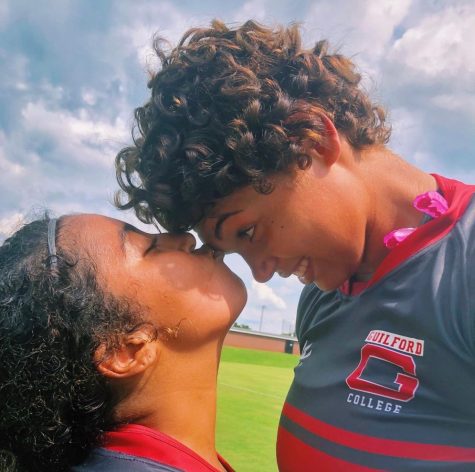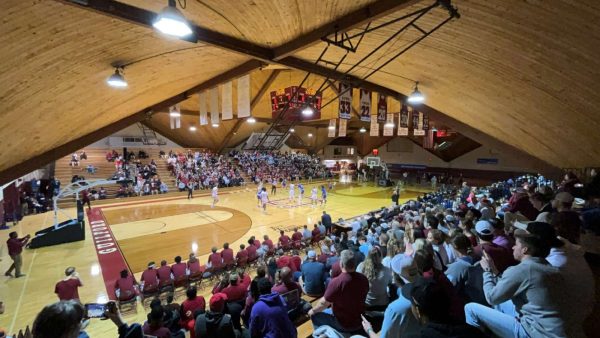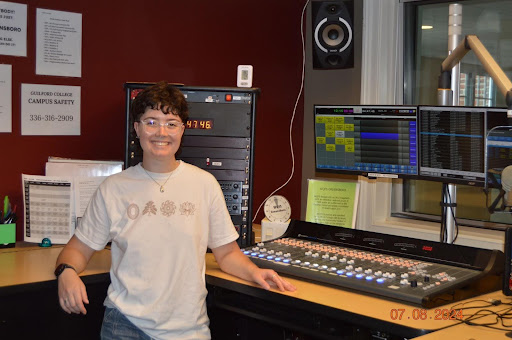Team Profile: Women’s Rugby

At the start of the 12-week, whispers followed Portia Star Jones everywhere she went.
“I heard she fell down a flight of concrete stairs.” a voice echoed.
“I heard she got into a bad fight.” another countered.
The rumors were not for nothing; Jones had two swollen black eyes and bruises covering her thighs and entire 6-foot-3-inch wingspan. It came as no surprise to any of her teammates that was a rugby-related injury. A player had head-butted her directly on the bridge of her nose, and the swelling dispersed underneath her eyes.
The Quakers are no strangers to pain at the expense of victory.
“Our team is made up of some of the strongest people I’ve ever met,” says first-year rugby player Sarah Pitts. “We’re willing to do anything if it means securing a win.”
Pitts went on to detail her personal history of rugby injuries.
“A girl slammed into my hip from both sides and it basically folded into itself,” she said casually.
Pitts had to undergo a painful procedure that left her with an intensive eight-month recovery period.
When asked what drives her, Pitts laughed.
“Rugby is the only thing that allows me to be entirely present in the moment,” she said. “Growing up in a devoutly religious area in Tennessee, I never felt like it was safe to be myself. Rugby gives me the space I need to exist exactly how I am.”
The women’s rugby team is no stranger to extensive injuries.
“We have seen an abundance of soft-tissue injuries and bone bruises,” Coach Jeff Horton explained. “Our sports medicine staff have been nothing short of incredible and have done an amazing job of rehabbing our student-athletes back into playing condition.”
Coach Horton was discovered by sheer coincidence. Having moved to a new town, he was approached by the team captain of his high school rugby team.
“I figured joining the club would be a great way to meet new people and make friends. 21 years later, it is safe to say that joining the rugby club was one of the best decisions I have ever made,” Horton said.
Horton’s day job brought him to North Carolina just before the pandemic. He was looking to get back into coaching and found Guilford, one of only 30 schools in the NCAA Emerging Pathway for Rugby.
“Throughout my interview process, I was welcomed by the community with open arms and I ultimately started to see (rather clearly) that we could build a truly special program here,” Horton said.
According to his players, Horton has a well-rounded coaching philosophy.
“He’s really passionate about what he does, and it’s genuinely inspiring to be a part of,” Pitts said.
“The feedback I receive from the players is just as important as the feedback I give them,” Horton explained.
Horton emphasizes on clear boundaries, open communication, and accountability on and off the field.
Horton claims that there has been a long-standing tradition of club rugby for both men and women. Unfortunately, the men’s club team died out during the pandemic, and the NCAA only supports women’s rugby as an emerging sport. Guilford only offers women’s rugby at the varsity level.
When asked about his favorite memory from coaching so far, Horton recalled the first game they played. The Quakers dominated Newberry college, securing a 17- 0 win.
“It was a testament to all of the hard work put in by so many people and being a small piece of that will be something that I will never forget,” Horton said.
The women’s rugby team grows stronger every day, continuing to master their craft. Most recently, they won both homecoming matches against Elon.









